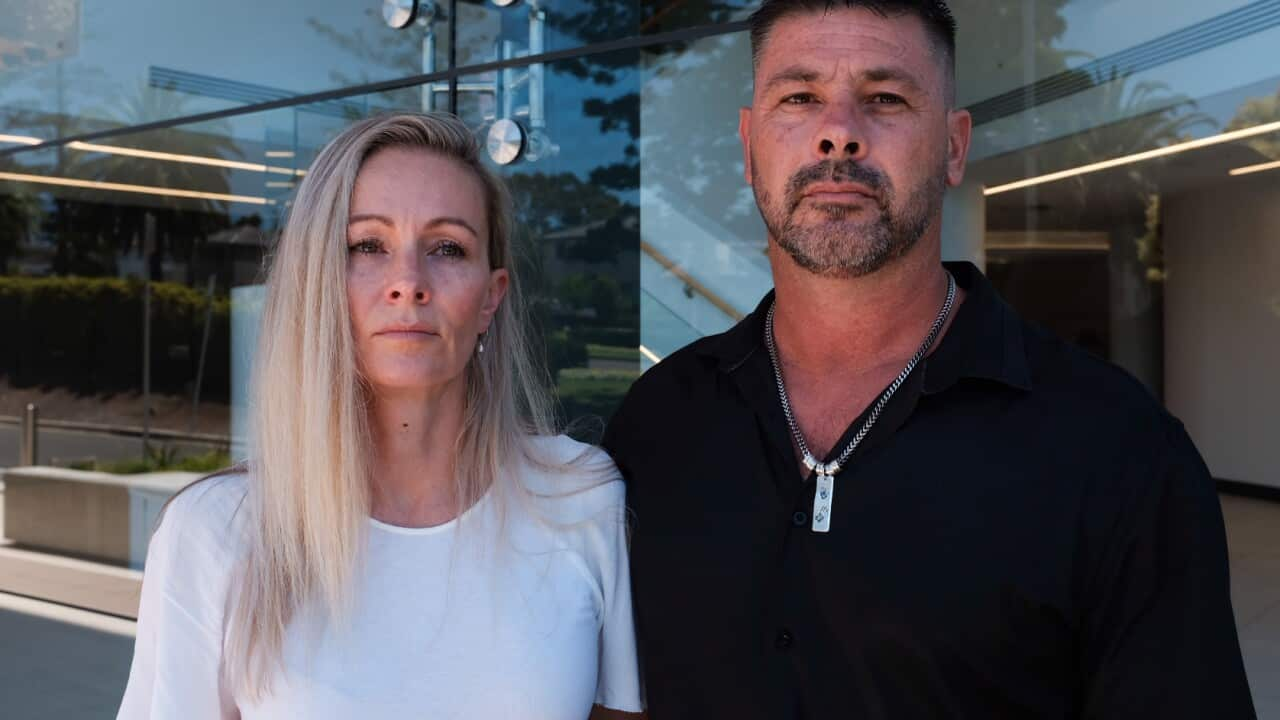WARNING: This story contains the name and images of a person who has died.
The family of Wiradjuri man Bailey Mackander have commended the coronial findings handed down on Wednesday at the inquest into the young man's death.
The inquest found that NSW Correctional Officers exacerbated Bailey’s mental distress by placing him in an isolated assessment or “safe” cell. He later died after trying to escape custody.
NSW Deputy Coroner Elaine Truscott concluded the inquest with an emotional apology to the Mackander family.
“You could see it was heartfelt, I felt really emotional about it,” Bailey’s father David Mackander told NITV News.
“It’s nice to have somebody in this whole process (who) seemed to really care.”
David said he wasn’t expecting some of the Coroner’s recommendations.
“The disciplinary action for some of the staff - we weren't expecting her to put that forward,” he said.
“But it’s a relief that’s happened because I believe they should take ownership for their actions.”
Coroner Elaine Truscott recommended that Corrective Services NSW review whether disciplinary actions should be taken regarding the conduct of a prison officer at Kariong Correctional Centre.
The inquest heard the prison officer’s involvement in extending Bailey’s time in an isolated assessment cell before he died warranted a referral of conduct to Corrective Services’ Professional Standards.
“Nobody recognised or considered that more harm than good was being done to Bailey,” the Coroner said.
“Despite demonstrating calm behaviour on 4 and 5 November so that he might be discharged from the cell, he was not reviewed and discharged as he had been told would occur.
“It was careless.”
Mr Mackander's family say they have some faith that the coroner's findings will help to make systemic change.
“We’re really hoping Corrective Services take it on board and make the changes that are recommended,” David said.
“We like to think they will.”
Bailey struggled in isolation
The Coroner told the court Bailey was struggling with being in isolation in the days leading up to his death.
“Bailey was vulnerable, experienced anxiety and distress which was seriously exasperated when he was in the assessment cell… a cell with 24/7 lighting and no access to open air,” Coroner Truscott said.
“He fabricated stomach pains and stories that he swallowed foreign objects to attend hospital so he could have time away from the cell.”
Bailey was taken to Gosford Hospital after reporting he ingested razor blades.
Upon his release, he escaped the custody of two prison guards who were supposed to safely escort him back to Kariong and jumped over a wall at the hospital’s ambulance bay.
The Coroner attributed Bailey’s 2019 death to “multiple injuries from falling from a height”.
“I have no doubt that Bailey did not realise there was an 8-metre drop,” said Coroner Truscott.
“His escape was impulsive..”

Coroner urges systemic reform
Coroner Truscott urged an overhaul of mental health services in NSW prisons after identifying several systematic failures before Bailey’s death.
“He received no psychological or mental health support and was subjected to a management style that resulted in frustration and a lack of understanding of how to deal with Bailey’s escalating deterioration,” she said.
The Coroner acknowledged the limits of her many recommendations without adequate funding from the state government.
“Providing better psychological and welfare services to inmates, especially the vulnerable young First Nations men who are so gravely overrepresented in the prison population, would... save lives, trauma, self-harm and deaths in incarceration.” The inquest heard Coroner Truscott's voice quiver as she concluded the inquest into Bailey’s death.
The inquest heard Coroner Truscott's voice quiver as she concluded the inquest into Bailey’s death.

“These findings and recommendations will not stop the courts from sending young babies to prison,” she said.
“They will not cause the correctional system to cater to all crimes in better or more ways, or cause the government to invest more money in alternatives so that young people with drug problems are not treated like criminals.”
“I suspect they will not even result in better mental health and psychological support for prisons which are full of people who need it, but perhaps they will save one or two from being placed in a RIT (isolated assessment) cell to battle to the ends of their life.
“Bailey was not some prisoner nobody cared about… To the Mackander family, I’m so very sorry for your loss.”
Family’s plans to prevent future deaths in custody
Looking forward, David and Bailey’s stepmother Melissa Mackander said they’re resuming their plans to build a rehabilitation centre in the Central Coast.
“It was put on the back burner after what happened with Bailey,” David said.
“Now that this is all over, it’s really pushing us to try and help the community.”
Bailey’s father believes his son turned to substance abuse in 2019, unable to cope with the death of his younger sister.
At the time, Melissa said there were only two rehabilitation centres in Sydney and one in Coffs Harbour.
The Mackander family tried to get Bailey into rehab many times but was only successful once due to long waitlists.
When Bailey finally got in, Melissa said there was little to no help in supporting him to stay.
“Your juvenile child can just sign themselves out and go, ‘I don’t want to be here anymore.'
"It’s unbelievable.”
Instead of getting the help he needed, David said his son ended up in prison.
“If we had more help back in the day, this may never have happened.”
The couple has identified a site for the facility in Port Stephens.











